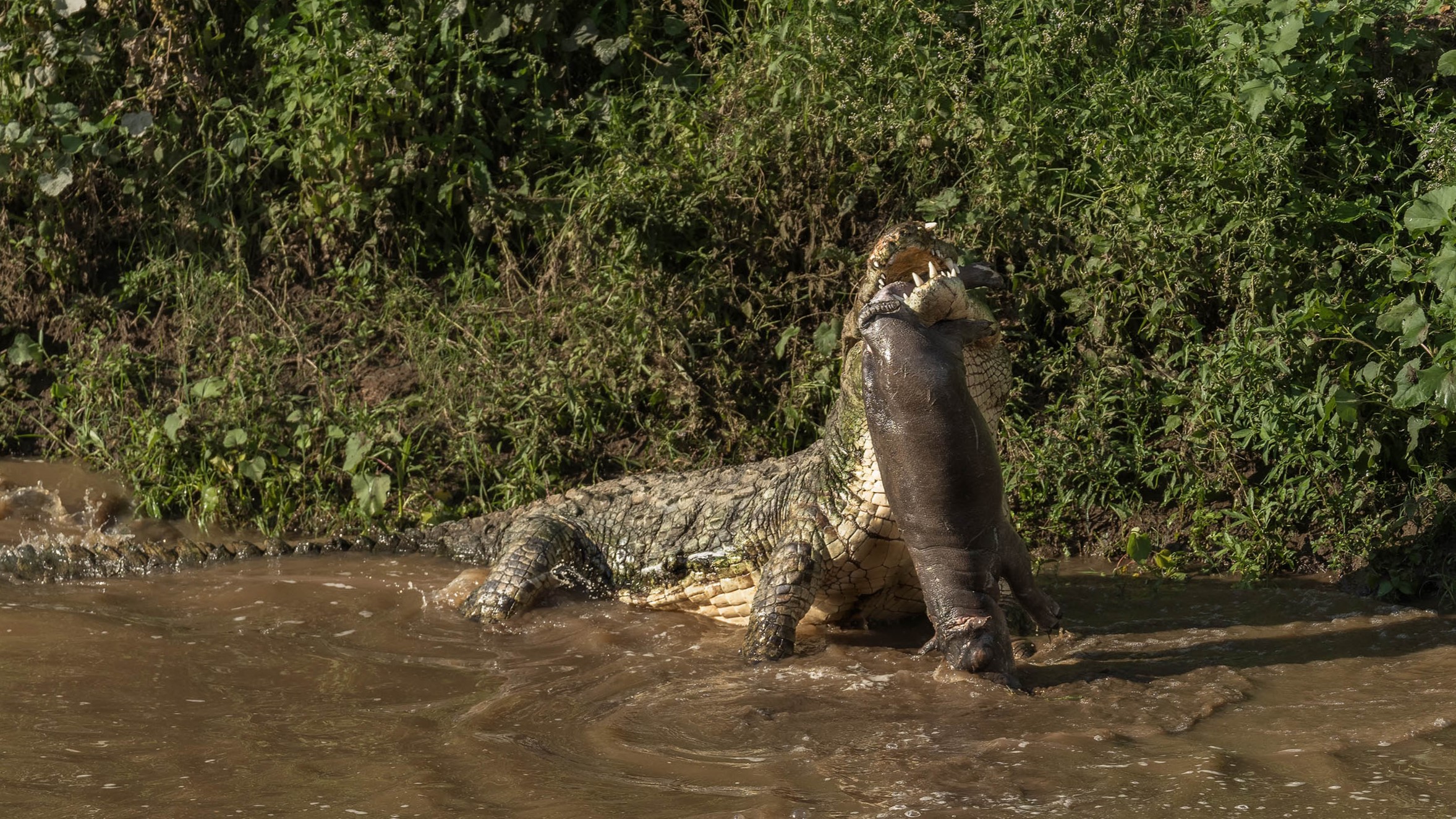Watch rare footage of huge crocodile eating baby hippo with umbilical cord still attached
A crocodile in Kenya's Mara River was filmed thrashing around with the corpse of a baby hippo in its jaws in unusual sighting. It is unclear if the crocodile killed the calf or if it snatched a stillborn.

Rare footage has captured the moment before a huge crocodile began feasting on a newborn hippo in Kenya's Maasai Mara. The hippo appeared to still have its umbilical cord attached as the crocodile held its body in its jaws and thrashed the carcass around.
Frankie Adamson, a wildlife photographer who was working as the resident photographer for the safari operator Governors' Camp Collection, filmed the incident from the banks of the Mara River.
A post shared by Frankie Adamson (@the.wildlife.side)
A photo posted by on
"It's generally accepted that crocodiles would not approach or threaten an adult hippo, but I have heard that they are opportunists and if it's possible they would take a chance to snatch a baby," Adamson told Live Science in an email. "It is something I had never seen with my own eyes, however."
Adamson was alerted to the crocodile with the hippo calf by a colleague.
Related: Indian crocodiles seen saving dog from feral pack attack, but scientists divided over what it means
"The crocodile already had the baby hippo held in its jaws by the time I approached, and I was fairly certain it was already dead," she said. "This raised questions in my mind as to whether the crocodile had killed it, or whether it had been still-born and the carcass snatched as I later saw the baby's umbilical cord still attached."
Adamson said there were no other hippos in this section of the river. The crocodile was initially still in the water, holding the carcass in its jaws, but it began throwing the corpse around when it was disturbed by catfish. "It started lifting the carcass up out of the water and very violently thrashing it around," Adamson added.
Sign up for the Live Science daily newsletter now
Get the world’s most fascinating discoveries delivered straight to your inbox.
Crocodiles thrash their heads from side to side to kill prey or to break it into smaller chunks. Adamson said she watched the crocodile with the hippo for around 45 minutes but did not see it eat any of the carcass. Eventually it swam away with its meal downriver.
Nile crocodiles (Crocodylus niloticus) grow up to around 16 feet (5 meters) long and are aggressive and opportunistic apex predators. They generally feed on fish but will also target terrestrial mammals like zebras, impalas and buffalos. But adult hippopotamuses (Hippopotamus amphibius) can grow to 16.5 feet (5 m) long and weigh up to 9,920 pounds (4,500 kilograms) and could easily kill a crocodile. Crocs sometimes prey upon hippo calves, but then run the risk of being attacked by the mother hippo.
"It's certainly not often that these ruthless and most efficient apex predators snatch baby hippos from their mothers — in fact as opportunistic as crocodiles are — they will often avoid hippos as they know just how aggressive an angry hippo can be," Governors Camp Collection wrote in an Instagram post.

Hannah Osborne is the planet Earth and animals editor at Live Science. Prior to Live Science, she worked for several years at Newsweek as the science editor. Before this she was science editor at International Business Times U.K. Hannah holds a master's in journalism from Goldsmith's, University of London.










